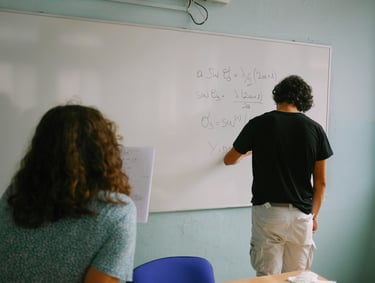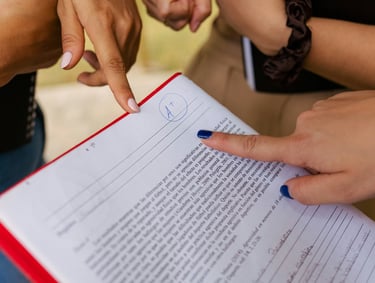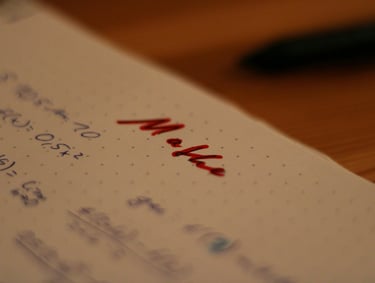9 Common Mistakes Students Make in Cambridge Maths Exams (and How to Avoid Them)
Discover the 9 most common mistakes Cambridge Maths students make in exams and how to avoid them. Boost your marks with smart exam strategies and simple fixes.
STUDENTS
Achiever Tandoh
9/12/20258 min read


Common Mistakes Students Make in Cambridge Maths Exams
You’ve revised. You’ve practiced past papers. You know the content. Yet when the Cambridge Maths exam paper lands on your desk, mistakes still sneak in. Sometimes, it’s something small like forgetting units or mishandling a negative sign. Other times, it’s bigger, like misreading the question entirely or running out of time.
Here’s the truth: most students don’t lose marks because they don’t understand or because they didn’t study. They lose marks because of avoidable mistakes.
The Cambridge Maths syllabus (from IGCSE to AS and A Level) is not easy. It requires precision, accuracy, and exam strategy. Examiners aren’t just testing whether you know the content; they’re testing whether you can apply it under pressure, in the exact format Cambridge requires.
That’s why avoiding common mistakes is one of the easiest ways to boost your grade. Even shaving off 5–10 careless errors can mean the difference between a B and an A.
In this guide, we’ll explore the 9 most common mistakes Cambridge Maths students make in exams, and more importantly, how to avoid them. Each point comes with practical strategies, examples, and tips to help you stay calm, accurate, and in control on exam day.
Let’s get started.
1. Not Reading the Question Carefully


This is mistake number one for a reason. Cambridge examiners often say in their reports that students lost marks because they did not answer the question that was asked.
What does that mean? It means you knew the maths, but you didn’t read the instructions properly so you answered something else.
Examples:
The question asks for the equation of the line, but you only give the gradient.
The question asks for your answer in radians, but you write it in degrees.
You’re asked to give your answer to 3 significant figures, but you round it to 2 decimal places.
These errors are painful because they cost you marks you already earned.
How to avoid it:
Underline or circle key words in the question: “radians,” “simplify,” “show all working.”
At the end of the question, double-check: Did I give the answer in the form asked? Did I round correctly?
If the question has multiple parts (a, b, c), make sure you’ve answered all of them.
Think of it this way: the examiner can only give you marks for what’s written on the page. Even if the examiner knows that you know the answer, if you don’t write it down, they won’t give you the marks. Don’t throw away easy points by ignoring the instructions.
2. Not Writing Units and Misusing Notation


Cambridge Maths isn’t just about numbers. It’s also about communication.
Many students forget to include units or use incorrect notation. It might seem small, but in exams, small errors add up and can cost you a lot of marks.
Examples:
Writing an answer as “12” instead of “12 cm.”
Using degrees when the question specified radians.
Confusing f(x) with f’(x), or misusing symbols like > and <.
Cambridge exams are strict about mathematical communication. Leaving off units or misusing notation can cost accuracy marks, even if your calculation is correct.
How to avoid it:
Train yourself to always write units where appropriate. Make it a habit. Even if you are just practicing at home.
Revise notation: know the difference between sin(x) inverse and the reciprocal of sin(x) (1/sin(x)).
Use a checklist when reviewing answers: “Does my answer have units? Is my notation correct?”
Remember: Maths is a language. Write it properly, and you’ll pick up marks others lose.
3. Over-Reliance on the Calculator


Algebra is the backbone of Cambridge Maths. Yet careless algebraic mistakes happen too frequently.
Common mistakes:
Dropping a negative sign when expanding brackets.
Forgetting to flip the inequality when dividing by a negative.
Mishandling fractions when simplifying expressions.
Example:
If you solve −2x > 6 by dividing both sides by −2, you must flip the inequality:
x < −3 (not x > −3).
How to avoid it:
Write every step. Don’t skip from the first to the final line.
Revise algebra basics regularly, even if you feel “too advanced.”
Master your laws of indices, surds, dealing with fractions etc.
Check your final answers by substitution: plug x back into the original equation to test it.
Mastering algebra is like mastering grammar—it governs everything else.
5. Not Showing Enough Working


Cambridge examiners want to see how you think. That’s why “method marks” exist.
If you only write the final answer and it’s wrong, you’ll score zero. But if you show your steps, you might still get half or more of the marks—even if the final answer is off. If a question is 5 marks, you cant expect to write 3 lines and get full marks.
Example:
A 6-mark question on differentiation:
If you make a small arithmetic error in the last step, but your differentiation was correct, you’ll still earn most of the marks.
But if you only write the final answer because you are so good at differentiation and can now do it with your mind. You will only get a small fraction of the marks. And if you made a mistake and got the answer wrong, then you get a Zero.
How to avoid it:
Always show full working for longer questions.
Use clear steps. Don’t cram everything into one line.
Remember: examiners want to give you marks. Let them see your process. There’s no mark for being a genius and skipping steps.
Think of your working as your insurance policy. It protects you from small mistakes. Write as though the person marking doesn’t know the content, they must see where you got that 2 from and why you are multiplying by 5.
6. Time Mismanagement
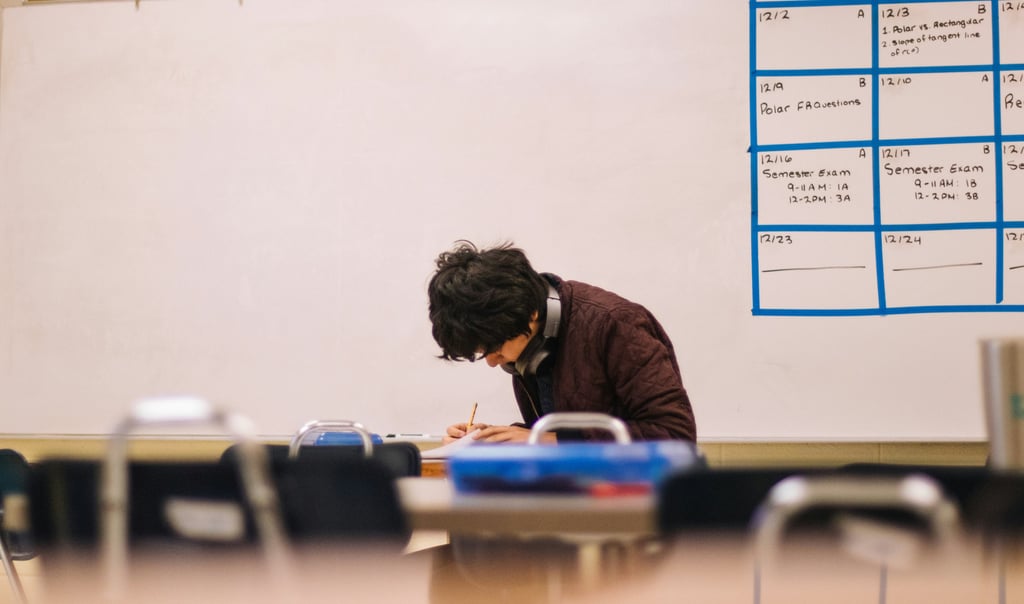

Many students know the content but lose marks because they run out of time. They spend too long stuck on one problem and rush through others.
How this looks:
Spending 20 minutes on a 5-mark question.
Rushing through a 6 mark question in 6 minutes later.
Leaving an entire 10-mark question blank at the end.
How to avoid it:
Follow the “1 mark = 1 minute” rule, or at most 1 mark = 1,5 minutes for difficult questions. If a question is worth 7 marks, don’t spend more than 10 minutes on it.
If you’re stuck, circle it and move on. Come back if you have time.
Practice under timed conditions. Do at least 2–3 full timed past papers before the real exam.
Time management isn’t just about speed. It’s about strategy. This strategy allows you to collect the most marks. So even if you don’t manage to finish, at least you are sure that you have collected all the easy marks and what’s left is the harder questions.
It’s very painful to collect your script and realize that you left easy questions unanswered because of time, and worse, you failed the difficult questions that you spent all your time struggling with.
Also, answering easier questions first, gives you a head start. It feels good to realize that you have comfortably answered half the paper in about a quarter of the allocated time. This boosts your confidence and momentum which will serve you really well when you come back to tackle the harder questions.
On the flipside, struggling for too long on a difficult question can leave you confuse and defeated so much so that you may begin to find the otherwise easy questions confusing because you begin to over analyze them and end up loosing marks because of mistakes.
7. Forgetting to Check Answers


Exams are stressful, and students often finish just in time or even in a rush. But not checking your answers is a missed opportunity.
Examples:
Writing ½ × 6² = 18 (instead of ½ × 6^3 = 108).
Solving a quadratic incorrectly when a quick substitution back into the original equation would’ve exposed the error.
How to avoid it:
Always leave 5–10 minutes at the end for checking your work.
Start by re-checking the “easy” questions—you don’t want to lose marks there.
For algebra or equations, substitute your answer back into the question to test it.
Checking is where you catch careless mistakes. And those are the easiest marks to save.
8. Weak Graph Skills
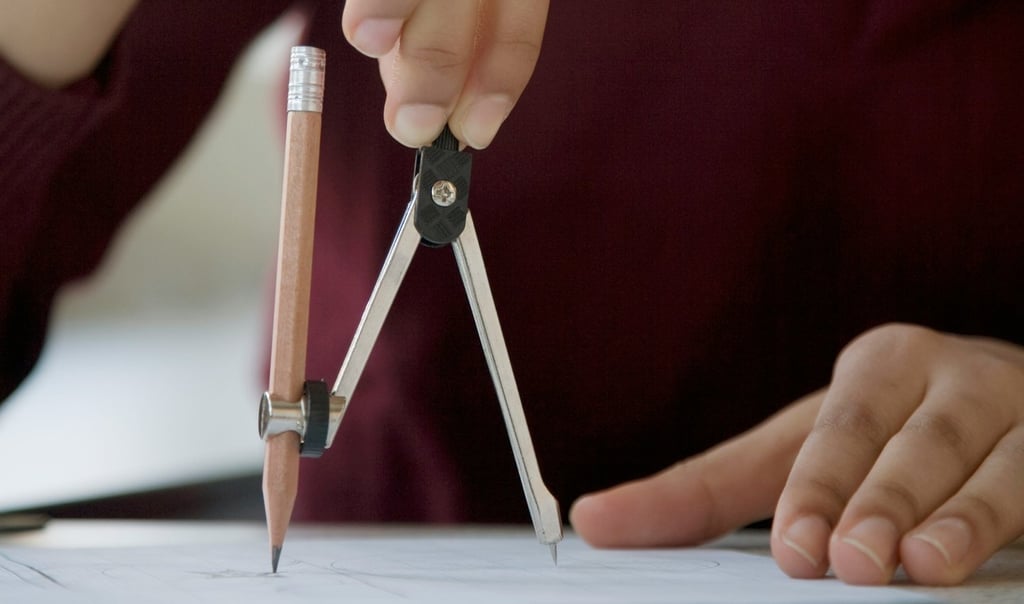

Graph questions often appear simple—but many students lose marks here.
Common mistakes:
Forgetting to label axes.
Using the wrong scale.
Misinterpreting transformations [e.g., confusing y = f(x+2) with y = f(x) + 2].
How to avoid it:
Practice sketching by hand, without a calculator. You need intuition, not just plotting.
Review graph transformations carefully. For example, “+2” inside the bracket means a horizontal shift left, not right.
When given data, choose scales that use the graph paper effectively.
Always make sure you label your graph (axes, titles, units, and important data points).
Graph skills are visual, so practice them visually by actually doing them.
9. Panicking Under Pressure
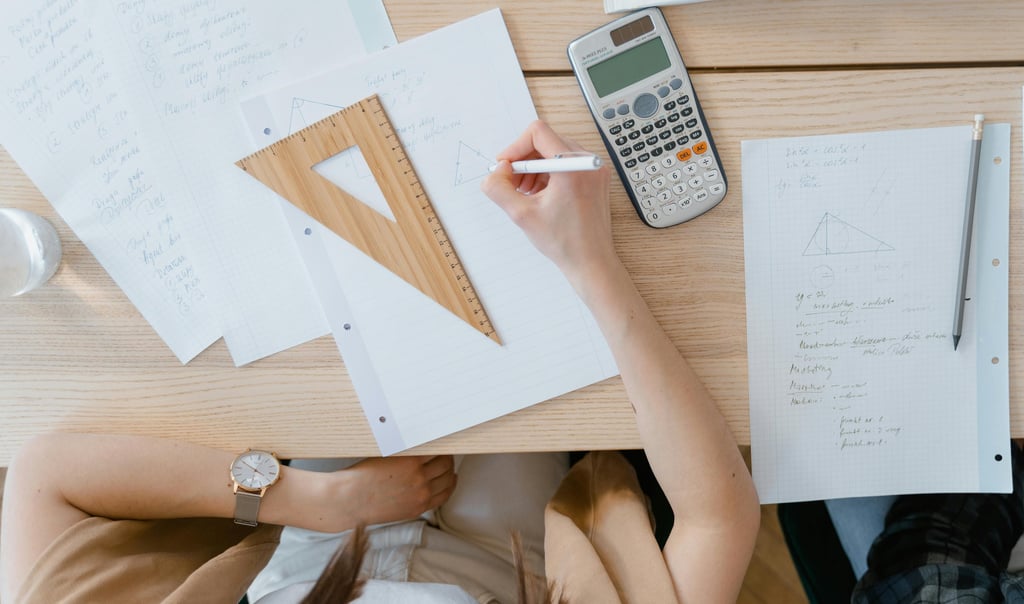

Finally, the most human mistake: panic.
Even students who know their stuff can freeze in the exam hall. Heart starts racing, mind becomes blank, formulas begin to fade.
How to avoid it:
Practice under exam-like conditions (quiet room, timer, no notes).
Learn calming techniques: deep breathing, stretching, or writing down a formula you know as soon as the paper starts.
Have an exam-day routine: check your stationery, check your calculator, eat a good meal.
And very importantly, avoid cramming all night before the paper. Sleep is essential and cramming all night does more harm than good. Revise early to build confidence in the subject and have a good night rest before the paper.
Remember: nerves are normal. But preparation + strategy = calm.
Final Thoughts
Cambridge Maths is tough. But the truth is, most marks are lost not because students don’t know the maths—but because of small, avoidable mistakes.
If you can avoid the 9 errors we’ve covered, misreading the question, forgetting units, mishandling algebra, poor time management etc., you’ll instantly boost your score.
Every student has the potential to do better. It’s not just about more practice—it’s about being smarter with your practice.
At Chimhanda Tutoring, we don’t just teach content. We teach exam strategy too. Our tutors help Cambridge Maths students spot their mistakes, fix them, and walk into exams with confidence.
👉 Book a free trial lesson today. Let’s help you avoid the pitfalls, master the strategies, and achieve the results you deserve.
Because success in Cambridge Maths isn’t about being perfect, it’s about being prepared.
The best way to predict your results is to start preparing for them.
Need help along the way? Chimhanda Tutoring is here to walk the journey with you.
